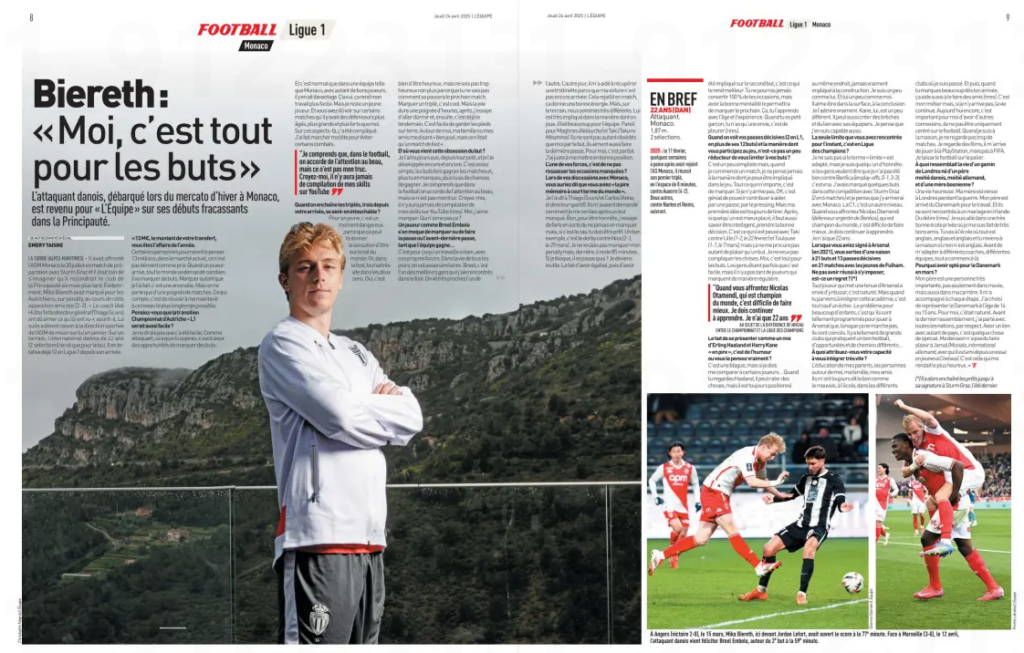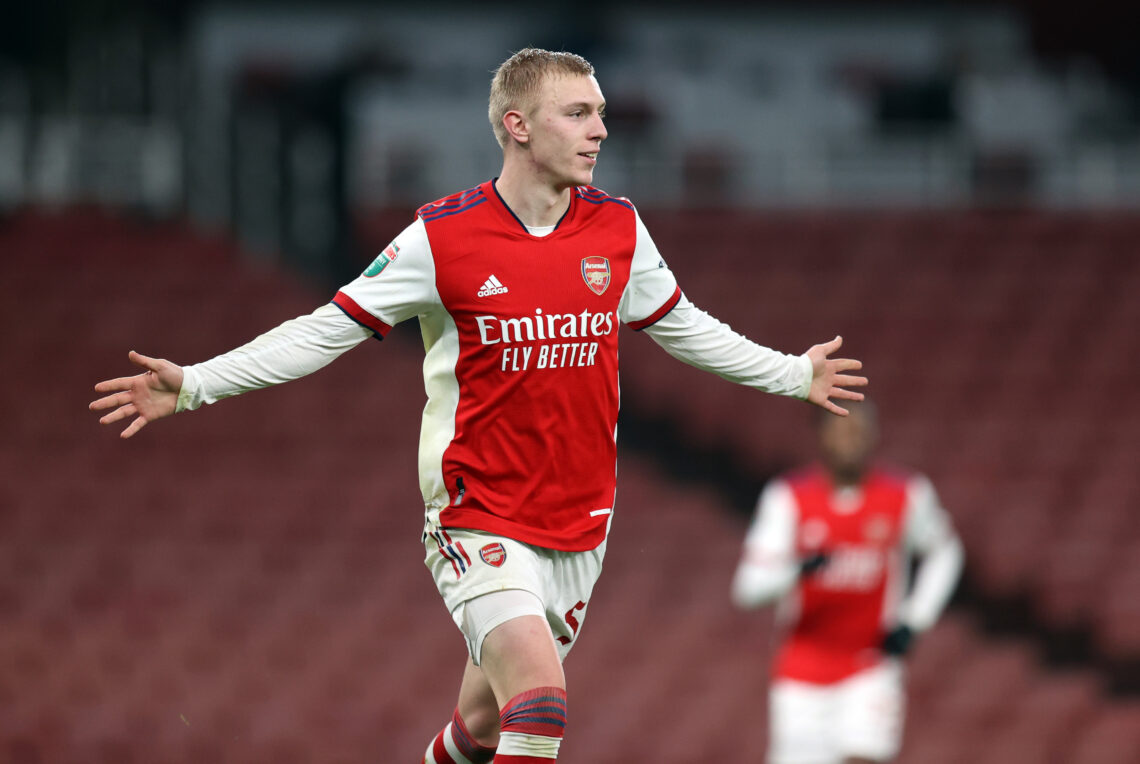Mika Biereth does not consider his time at Arsenal a failure despite failing to break in to the first team.
In a wide-ranging interview with L’Équipe, the 22-year-old Monaco striker reflected candidly on the formative impact of his time at the club, even though he never broke into the first team.

“Any player who puts on an Arsenal shirt wants to succeed there, that’s natural,” Biereth said.
“But getting into that academy is anything but a failure. The problem for a lot of kids is they’re so programmed to play for Arsenal that, when it doesn’t work, they feel stuck. But there are so many great clubs that play good football, with different opportunities and paths.”
Biereth joined Arsenal from Fulham in 2021 off the back of 21 goals and 13 assists in just 21 youth appearances. He went on a series of loans, including a successful stint with Sturm Graz which translated into a permanent move before signing for Monaco for €13m just six months later.

Since arriving in Ligue 1, Biereth has scored 12 goals and made two assists in only 13 games, establishing himself as one of the league’s most effective strikers in just a few months.
“When I start a game, I don’t think about how to get involved in play,” he said. “All I care about is scoring.”
And scoring is something he just keeps doing. He already has 80 goals, and 37 assists, in his 158 games at all levels to date.

Though he acknowledged the demands of adapting to more physical and tactical opponents in France, Biereth’s confidence is grounded in having a bad memory. “I told Thiago [Scuro] and Carlos [Avina] that I have the worst short-term memory in the world,” he said. “If I miss a chance, I have to be ready. You can’t dwell. You’ll never convert 100 percent, but the right mentality lets you score the next one.”
His reflections on Arsenal are thoughtful, not sentimental. Biereth sees the club as a step in his journey and his respect for the club is clear. He would like to return one day.
